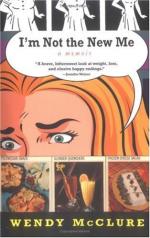There was fun enough in this sort of thing to “keep one up,” so that one could return bravely to the chief end of existence; for this seemed for many years to be nothing less, and little else, than the exercise of those faculties called forth by the wails of the bereaved. From every corner of the civilized globe, and in its differing languages, they came to me—entreaties, outpourings, cries of agony, mutterings of despair, breathings of the gentle hope by which despair may be superseded; appeals for help which only the Almighty could have given; demands for light which only eternity can supply.
A man’s grief, when he chooses to confide it to a woman, is not an easy matter to deal with. Its dignity and its pathos are never to be forgotten. How to meet it, Heaven only teaches; and how far Heaven taught that awed and humbled girl I shall never know.
But the women—oh, the poor women! I felt less afraid to answer them. Their misery seemed to cry in my arms like a child who must be comforted. I wrote to them—I wrote without wisdom or caution or skill; only with the power of being sorry for them, and the wish to say so; and if I said the right thing or the wrong one, whether I comforted or wearied, strengthened or weakened, that, too, I shall not know.
Sometimes, in recent years, a letter comes or a voice speaks: “Do you remember—so many years ago—when I was in great trouble? You wrote to me.” And I am half ashamed that I had forgotten. But I bless her because she remembers.
But when I think of the hundreds—it came into the thousands, I believe—of such letters received, and how large a proportion of them were answered, my heart sinks. How is it possible that one should not have done more harm than good by that unguided sympathy? If I could not leave the open question to the Wisdom that protects and overrules well-meaning ignorance, I should be afraid to think of it. For many years I was snowed under by those mourners’ letters. In truth, they have not ceased entirely yet, though of course their visits are now irregular.
I am so often asked if I still believe the views of another life set forth in “The Gates Ajar” that I am glad to use this opportunity to answer the question; though, indeed, I have been led to do so, to a certain extent, in another place, and may, perhaps, be pardoned for repeating words in which the question first and most naturally answered itself:
“Those appeals of the mourning, black of edge and blurred with tears, were a mass high beneath the hand and heavy to the heart. These letters had the terrible and unanswerable power of all great, natural voices; and the chiefest of these are love and grief. Year upon year the recipient has sat dumb before these signs of human misery and hope. They have rolled upon the shore of life, a billow of solemn inspiration. I have called them a human argument for faith in the future life, and see no reason for amending the term.”




